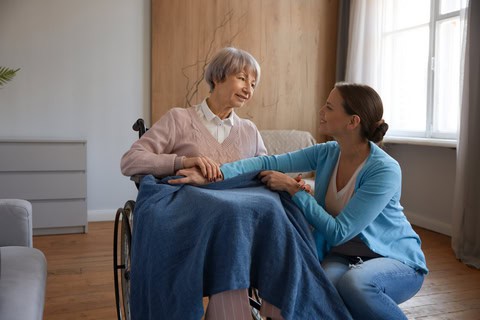While many of us resist becoming our parents, especially when we’re young or if our parents had negative traits that we wouldn’t want to emulate, picking up bits of who they were can be among the greatest of gifts. Seniors Guide writer Terri L. Jones shares her perspective.
The other day while at the gym, it started pouring outside. Before heading out into the rain, I told someone, “I’m not made of sugar, so I won’t melt.” That was a phrase my mother used to use all the time. Her words unconsciously springing from my mouth made me smile.
The apple doesn’t fall far from the tree
As we move from childhood to adulthood, we all realize that we’re chips off the old block in one way or another. According to a study by Dr. Julian De Silva, this phenomenon for women usually occurs at around age 33 since that’s when many have become mothers themselves and begin to model their parenting on their mom’s. For men, it happens a year later, at roughly age 34, as they may become more like their father.
A family member may tell us how much we remind them of our mom or dad as we exhibit the same gestures or personality traits or laugh in the same distinctive way. Our spouse might jokingly accuse us of talking as much as our mom or as being as controlling as our dad. Or when we look into the mirror, we may begin to see our parent’s face staring back at us. After all, the apple doesn’t fall far from the tree!
Becoming our parents: A curse or a blessing?

In our younger and more strong-willed years, becoming our parents isn’t always a prospect we welcome. Maybe it’s because we didn’t get along with our parents or they were abusive or negligent and we vowed never to turn out like them. Or perhaps we’ve bought into society’s negative connotations of turning into our parents.
In fact, as far back as 1895, Oscar Wilde wrote in “The Importance of Being Earnest,” “All women become their mothers; that is their tragedy.” And more recently, Progressive Insurance, in its latest ad campaign, has turned youngish men and women acting like their parents into a punch line.
But in my case, it wasn’t that I didn’t want to turn into my mother. I didn’t think it even possible. My mom was an extrovert, and I was an introvert. She skipped school as a kid, but I felt guilty missing school even when I was sick. Mom was an athlete, while I preferred to read in my room. I didn’t even look like her. While I adored my mother and wished I could be more like her, it seemed like a real longshot!
A mother’s influence

However, I am the person I am because of my mother. After she passed away, I started seeing bits of her in myself. I didn’t suddenly have robin’s egg blue eyes like hers or become the life of the party or a talented golfer. Instead, I started using phrases that she used (“lip lure” for lipstick and “clean as the health department”) and doing things that she did (remaining strong in the face of bad news or praising a bartender for being so efficient). My mother’s influence had left its mark.
While I’ll never be as funny, kind, and strong as she was, these vestiges of her, emerging in unexpected ways, bring a piece of her back for me. Turning into my mother is the greatest of gifts.
Writer Terri L. Jones shares more about her mother:

